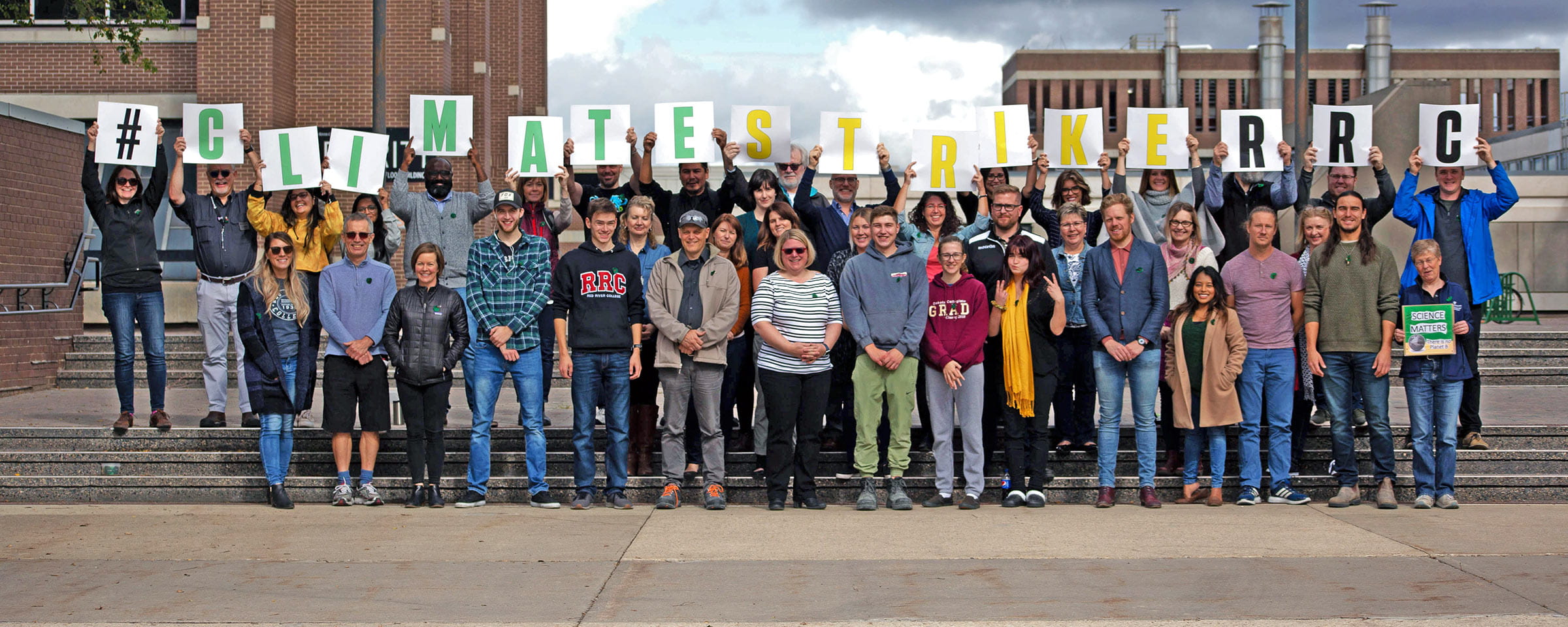Sustainability Office attends big, really big, sustainability conference

Sara and Whitney — waiting to catch the LRT to the airport. For all you baseball fans, that’s Camden Yards in the background.
Last week, Sara and Whitney (RRC’s Sustainability Office) left family and pumpkin pie meals at home and spent four days in Charm City to attend North America’s largest sustainability conference for higher education. More than 1800 of our post-secondary counterparts, faculty, students, administrators (and even a few College Presidents) descended onto Baltimore to gain lessons and tools, be inspired to advance sustainability initiatives at their own institutions, and form important relationships in a rapidly growing post-secondary sustainability network.
Here are a few observations and takeaways that stand out to us:
- Flying into Baltimore we were struck by the number of homes that have solar panels on their roofs. The United States is the second largest producer of coal worldwide, and because of its significant environmental impacts it was interesting to see the number of households who have committed to reducing their own environmental impacts by using solar energy. The topic of energy planning and reduction factored heavily into the conference sessions.
- We’re intrigued with the research a Social Psychology professor from the University of British Columbia is conducting about the interplay between cognitive science and environmental behaviours. We’ve followed up with Dr. Zhao and his research team to learn more about the effectiveness of real-time visual feedback in reducing water and electricity consumption in office buildings. As our Skilled Trades and Technology Centre is rapidly coming to life this research could inform how we convey building information to users.
- The most inspiring presentation of the conference came from Jeff Biggers, Sustainability Writer-in-Residence from the University of Iowa Sustainability Office. Jeff oversees The Climate Narrative Project – a media arts project that uses creative writing, art, dance, film and other mediums to explore ways of communicating sustainability topics. Don’t expect the Sustainability Office to be celebrating Earth Day with an interpretive dance anytime soon, but the session did get us thinking about how to tapping into human emotion through creative mediums could deepen our appreciation for sustainability issues.
- The Post Landfill Action Network (PLAN) talked about Fair Trade Recycling and reminded us that collecting and sending e-waste for recycling should not be the full extent of our responsibility. To ensure that we are not placing the burden of the toxins in these items on other communities and countries, it is important to be aware of how and where they are sent for recycling.
- While sustainability professionals often focus on the behind-the-scenes, operational side of sustainability for big impacts, a fascinating presentation by Princeton University’s Office of Sustainability demonstrated the importance of the personal experiences of our communities (staff, students, faculty, visitors) for real change. Our work is only as effective as how engaged and supportive our community is, so we must remember that our outward-facing work, and your perceptions based on this, is another key component to our success.
- One of the most exciting things of this conference was to share experiences with and gain insights from so many others working on, struggling with, or figuring out the same challenges as us. We made important connections with other post-secondaries tackling food waste, finding new ways to engage their campus communities in sustainability programs, and working to make meaningful connections outside of the campus community. We also realized how lucky we are to have a culture of sustainability here at Red River College and such a supportive environment for the work we do!
